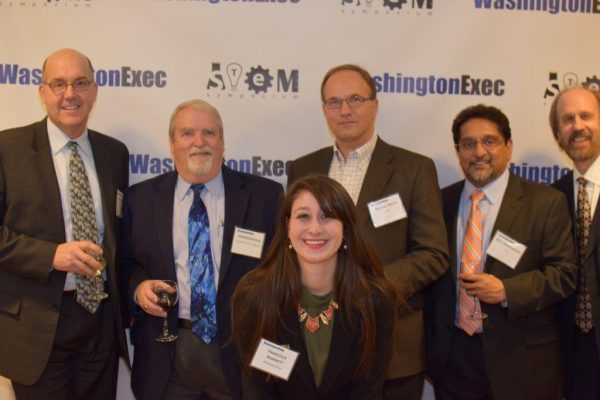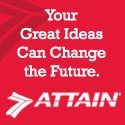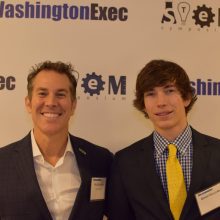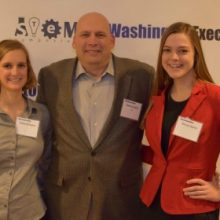
“Act like you know what you’re doing; ask questions like you don’t.”
That was just one pearl of wisdom Ed Swallow, vice president at The Aerospace Corp., shared with 60 students and parents at WashingtonExec’s “Careers In STEM” workshop on Monday. Here are some other invaluable advice for those early in their careers:
Know Your “Why”
For interviews, Swallow said, be knowledgeable: Go to the company’s websites and research its core values; go on LinkedIn and look for your interviewer’s profile, and those of other employees with positions similar to the one you’re applying for. Know the role, dress to impress and approach your interview as a conversation. “The difference between a job and a career is that employees want to go to work in their careers,” Swallow said. “So in your interview, ask them why.”
Swallow’s own “why” has brought him out of retirement three times. “I’m passionate about helping students launch their careers in STEM, especially those from underrepresented populations,” he said.
Mentoring is a large part of Bob London’s life as well. He is a startup mentor at 1776 and an entrepreneur in residence at the University of Maryland. A good elevator pitch, he said, connects where you’ve been and where you’re headed.
“Know what you’re looking for,” Swallow said. “Always be prepared to answer that.”
Six Steps to Success — Elevator-Pitch Style
Being able to articulate who you are, what you want and what you’re worth in only a few minutes is no small task. But London laid out six steps to success to help students (and parents):
- Know what problems your audience has that you can solve. Don’t waste a senior executive’s time—you’ve only got a few minutes, after all.
- In your pitch, balance between broad and specific. Make yourself memorable by providing specific examples of what you’re looking for, but avoid boxing in yourself. For example, “I want to volunteer with an NGO”—broad—”like Doctors Without Borders”— specific—is a good way to frame your goals.
- Gather proof. Know your accomplishments, your facts and figures. Quantify what you can; what’s the measurable difference you’ve made?
- Tell a story, and see how they react. Like Swallow said about interviews, pitches are supposed to open the door for a conversation. Breathe; see how your audience reacts.
- Go for the ask. “I’ve seen sales professionals pitch a product but walk away without making a sale,” London said, “because they don’t ask their audience to take action.” Make sure your ask is reasonable—a follow-up conversation, say, not a job—and leave a card. (“Yes, that means you need to have a card,” London said. Swallow said the same.)
- Practice, practice, practice. The single mistake both Swallow and London see job applicants make is being unprepared. “It doesn’t matter if you’re trying to get your first internship or close a multimillion-dollar deal,” London told the group. Perfect your elevator pitch and practice it (50 times at least, according to London), because “opportunities are everywhere.”
Most of all: Network, network, network!
Taking advantage of those opportunities means you have to be out there to find them. Networking is arguably the most effective way to build your personal brand. Creating a space for students to network not just with each other but also with executives is part of what makes these events valuable, said RJ Kolton, a senior vice president from Data Systems Analysts, Inc. “My daughter thoroughly enjoyed the evening and met some great folks,” he said.
What has your key to success been? Tell us on Twitter!
Related: K-12 STEM Symposium Video: Astronaut Dr. Sandy Magnus and Donald James of NASA








